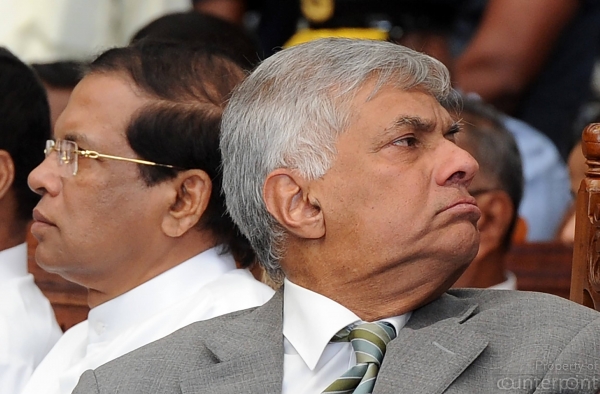By Rasika Jayakody
The Hindu’s account of President Maithripala Sirisena’s outburst at the last Cabinet meeting has sparked a fresh controversy throwing President Sirisena into a simmering diplomatic crisis with New Delhi.
It all started with the Chennai-based newspaper’s revelation that President Sirisena accused RAW, the Indian state intelligence agency, of attempting to orchestrate a conspiracy to assassinate him. This allegation came even as Sirisena vehemently opposed giving Colombo Port’s East terminal development project to India.
While a slew of denials by the government categorically rejected the newspaper report, signalling that the President had belatedly realised the gravity of the issue. These desperate measures at damage-control were futile as sharp contradictions in the government’s denials gave the original story published by The Hindu a ring of plausibility. Meanwhile, N. Ram, the Chairman of Kasturi & Brothers, the publisher of the newspaper, also made it clear they would stand-by the story, saying it was meticulously fact-checked by the reporter.
Ram’s strongly-worded statement challenging the denials has temporarily silenced the Sri Lankan government. However, Minister Mahinda Amaraweera, a close associate of President Sirisena, launched a fresh round of attacks on India on Saturday (20) when he accused at least four ministers in the current government of being RAW agents. He accused the four ministers of passing information to a reporter of The Hindu after the Cabinet meeting last week.
All of this drama unfolded while Prime Minister Ranil Wickremesinghe was in India with three senior Cabinet ministers, namely Sagala Ratnayaka, Arjuna Ranatunga and Malik Samarawickrama. Although the ‘RAW controversy’ was not taken up as a topic during the delegation-level talks between the two countries, it was widely discussed during the one-on-one meeting between Wickremesinghe and his Indian counterpart. As Wickremesinghe and Sirisena themselves are caught in an intensifying power struggle in a fragile coalition, it can be assumed that the outcome of the one-on-one meeting was not favourable to Sirisena.
Even the statement issued by the Prime Minister’s Office of Sri Lanka after the meeting between Sirisena and Modi was an unmistakable manifestation of the prevailing tug-of-war between the two coalition partners of the ‘Unity Government’. It said that Modi, during his meeting with Wickremesinghe, had expressed grave concerns over delays in implementing joint projects agreed upon by Sri Lanka and India in 2017.
The statement by the Prime Minister’s Office also vaguely referred to Sirisena’s alleged outburst at the Cabinet meeting. It said: ‘The Indian Prime Minister urged the Sri Lankan government to discuss directly with him if it had any doubts about the intentions of the Indian government or its leaders.’ In essence, it sharply contradicted the communique released by President Sirisena’s Media Unit on October 17 that attempted to indicate that Modi appreciated Sirisena’s effort at strengthening relations between the two countries.
It is clear that Wickremesinghe, who certainly aspires to contest the Presidential election in 2020, is increasingly aligning himself with India while Sirisena is busy immersing himself into a deep political mire, unwittingly. We can assume that Sirisena is trying to make himself appealing to the Sinhala-Buddhist electorate - the traditional vote base of former President Mahinda Rajapaksa - by openly questioning the rationale of projects funded by foreign powers.
The problem with this strategy, however, is that the President has very little support in the traditional Sinhala-Buddhist bloc and can never be a formidable force in Rajapaksa’s domain. Sirisena’s habit of looking for love in the wrong places has also alienated him from India - a key factor holding sway over Sri Lankan politics on crucial matters. The President has already alienated the UNP and its supporters who voted him into power ending a decade-long Rajapaksa rule, in January 2015. He has also alienated the progressive forces supporting him by venturing into power-politics by trying to win over a party that never belonged to him and by constantly making overtures to the Rajapaksa group which always treated Sirisena with suspicion. With less than 50 weeks for the next election, President Sirisena, who has seemingly failed in his initial attempts to secure candidacy from the two main parties, is increasingly isolating himself on the crest of a volcano.
(The writer is the former Editor of Daily News and the former Editor-in-Chief of Asian Mirror. He may be reached at This email address is being protected from spambots. You need JavaScript enabled to view it.)
ReplyReply allForward




